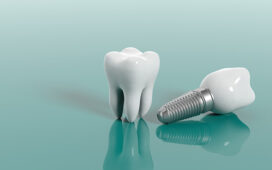Visiting the dentist can be stressful for many people, causing them to avoid regular checkups and treatments. If you experience dental anxiety, you are not alone. In fact, it’s quite common for people to feel nervous or fearful when it comes to dental visits. However, overcoming this anxiety is crucial to maintaining good oral health. For those seeking a family dentist in New Smyrna Beach, FL, there are various ways to ensure your dental care is as relaxing and stress-free as possible.
Understanding Dental Anxiety
Dental anxiety can stem from various factors, including previous traumatic experiences, fear of pain, or even the sound of dental equipment. Some people may experience mild unease, while others may have a full-blown phobia, which can prevent them from seeking necessary dental treatments. Understanding that dental anxiety is a real and common condition is the first step in addressing it.
The Importance of Addressing Anxiety
Ignoring dental issues due to anxiety can lead to worsening oral health, resulting in more complex and costly treatments down the line. Regular dental checkups are essential for preventing cavities, gum disease, and other dental issues. By addressing your anxiety, you are ensuring that your oral health remains in top shape and that you avoid potentially severe dental problems in the future.
Steps to Overcome Dental Anxiety
1. Open Communication with Your Dentist
One of the most important steps in overcoming dental anxiety is having a conversation with your dentist about your fears. A compassionate dentist will listen to your concerns and work with you to make the experience as comfortable as possible. Whether it’s the sound of the drill or the sensation of certain procedures, discussing these issues can help the dental team create a plan that puts you at ease.

2. Consider Sedation Dentistry
For patients with severe dental anxiety, sedation dentistry can be a helpful option. Sedatives are used to help relax patients during treatments. These can range from mild sedation, which makes you feel calm and relaxed, to deeper forms of sedation for more invasive procedures. Discussing sedation options with your dentist can help you choose the right method for your needs.
3. Practice Relaxation Techniques
Relaxation techniques, such as deep breathing or visualization, can help reduce anxiety before and during dental visits. Focusing on your breath or imagining a peaceful setting can help calm your mind and make the experience more manageable. You can also practice mindfulness to stay in the present moment, reducing your fear of what might happen during the procedure.
4. Create a Comforting Environment
A dentist’s office that prioritizes a calm and welcoming atmosphere can make a big difference in reducing anxiety. Many modern dental offices are designed with soothing colors, relaxing music, and comfortable furniture to help patients feel at ease.
5. Bring a Support Person
For some patients, having a trusted friend or family member accompany them to their appointment can provide a sense of comfort and security. Having someone with you can help distract you from any anxiety and make the experience feel less overwhelming.
6. Consider Distractions During Treatment
Some patients find it helpful to listen to music or watch a movie during their dental procedures to keep their minds off the treatment. Many dental offices offer headphones or even screens that allow patients to watch their favorite shows or listen to calming tunes. This distraction can be an effective way to reduce stress during longer procedures.
Conclusion
Overcoming dental anxiety is a crucial step toward achieving optimal oral health. By communicating openly with your dentist, you can make your dental visits more manageable and stress-free.











